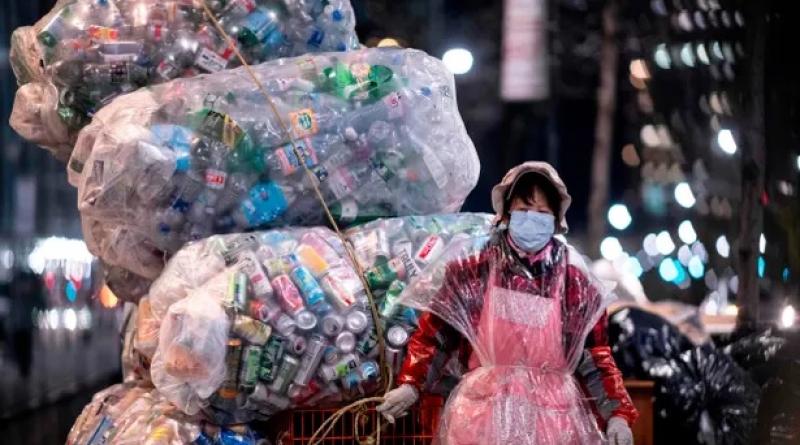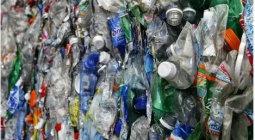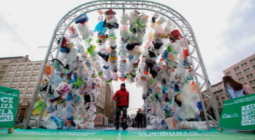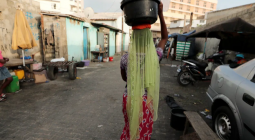Latin America urges US to reduce plastic waste exports to region

Study finds exports to region doubled in 2020 with practice predicted to grow as US invests in recycling plants
Environmental organisations across Latin America have called on the US to reduce plastic waste exports to the region, after a report found the US had doubled exports to some countries in the region during the first seven months of 2020.
The US is the world’s largest plastic waste exporter, although it has dramatically reduced the overall amount it exports since 2015, when China – previously the top importer – said it “no longer wanted to be the world’s rubbish dump” and began imposing restrictions. Elsewhere around the world imports are rising, and not least in Latin America, with its cheap labour and close proximity to the US.
More than 75% of imports to the region arrive in Mexico, which received more than 32,650 tons (29,620 metric tonnes) of plastic waste from the US between January and August 2020. El Salvador was second, with 4,054 tons, and Ecuador third, with 3,665 tons, according to research carried out by the Last Beach Cleanup, an environmental advocacy group based in California.
While hazardous waste imports are subject to tariffs and restrictions, they are seldom enforced and plastic waste intended for recycling – which until January this year was not considered hazardous under international law – that enters importing countries can often end up as landfill, according to a researchers with the Global Alliance for Incinerator Alternatives (Gaia).
A Gaia report published in July also predicted further growth in the plastic waste sector in Latin America due to companies in the US and China investing in factories and recycling plants across the region to process the US plastic exports.
Some view the practice as a form of environmental colonialism. “The cross-border plastic waste trade is perhaps one of the most nefarious expressions of the commercialisation of common goods and the colonial occupation of territories of the geopolitical south to turn them into sacrifice zones,” said Fernanda Solíz, the health area director at the Simón Bolívar University in Ecuador.
“Latin America and the Caribbean are not the back yards of the United States,” Soliz said. “We are sovereign territories, and we demand the respect of the rights of nature and our peoples.”
Most of the world’s countries agreed in May 2019 to stem the flow of plastic waste from the developed nations of the global north into the poorer ones of the global south. Known as the plastics amendment to the Basel Convention, the agreement prohibited the export of plastic waste from private entities in the US to those in developing nations without the permission of local governments.
But critically, the US did not ratify the agreement, and has been accused of continuing to funnel its waste into countries around the world, including in Africa, south-east Asia, and Latin America.
“Regional governments fail in two aspects: the first is inspections at customs because we don’t really know what enters the country under the guise of recycling, and they also fail in their commitments with international agreements such as the Basel convention.” said Camila Aguilera, a spokesperson for Gaia. “And here it is important to see what comes under the types of recycling because recycling is seen as a good thing.”
“Countries in the global north see recycling as something to be proud of, forgetting about redesigning the products and reducing waste,” said Aguilera. “It’s very difficult for governments to treat plastic like toxic waste, but that’s what it is.”
Cover photo: A woman pulls a cart loaded with bags of recyclables through the streets of New York. Photograph: Johannes Eisele/AFP/Getty





